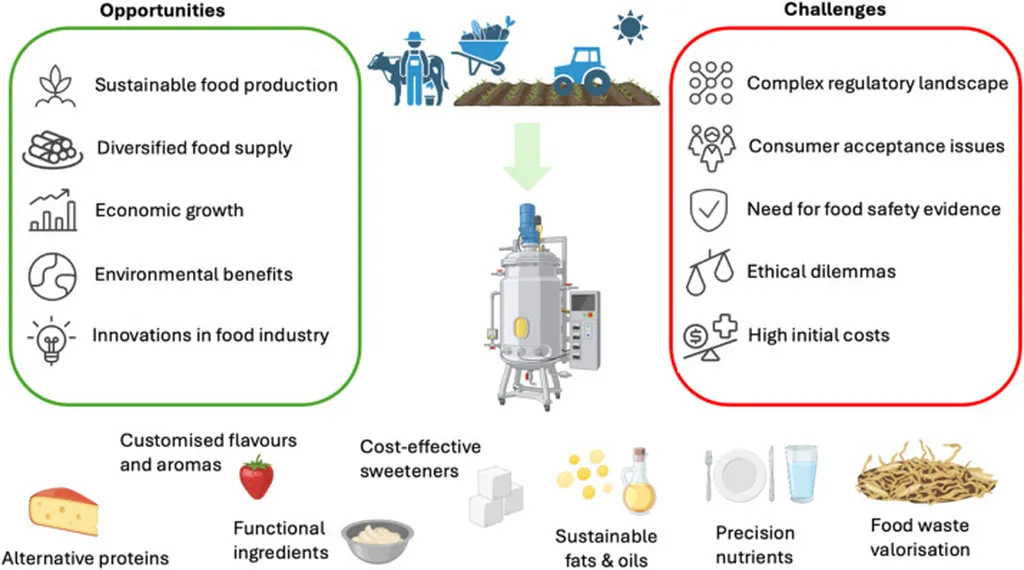In the heart of West Bengal, India, a groundbreaking study led by Srutee Rout from the Indian Institute of Technology Kharagpur is reshaping the future of food production. Rout’s research, published in *The Microbe* (translated to English as “The Microbe”), explores the transformative potential of precision fermentation (PF) in creating sustainable, alternative proteins. This innovative approach is poised to disrupt traditional animal-based agriculture, offering a more environmentally friendly and efficient solution to global food demands.
Precision fermentation leverages the power of genetic engineering and genome sequencing to produce proteins through microbial fermentation. Unlike traditional methods, PF allows for the creation of plant-based egg, milk, and meat substitutes that closely mimic their animal-derived counterparts. “This technology is not just about creating substitutes; it’s about reimagining the entire food production system,” Rout explains. The initial phase of PF has focused on using proteins as additives, but the real challenge lies in achieving cost efficiency and scaling up production.
The study highlights the critical role of process optimization, strain engineering, and scaling up in making PF-derived ingredients commercially viable. Rout emphasizes the need for a collaborative, transdisciplinary approach involving multiple stakeholders to ensure the sustainable production and market introduction of these innovative food products. “We are at the cusp of a new research frontier that blends process engineering, biotechnology, and sustainable food protein production,” Rout adds.
The implications of this research extend beyond the food sector, offering significant commercial impacts for the energy sector as well. As the world shifts towards more sustainable practices, the demand for alternative proteins is expected to rise. Precision fermentation presents a viable solution that aligns with the principles of Industry 4.0, integrating advanced technologies to create a more efficient and sustainable future.
Rout’s work, published in *The Microbe*, underscores the potential of precision fermentation to revolutionize food production. By harnessing the power of genetic engineering and genome sequencing, this innovative technology offers a sustainable and efficient alternative to traditional animal-based agriculture. As the world grapples with the challenges of climate change and food security, Rout’s research provides a glimmer of hope, paving the way for a more sustainable and resilient food system.

